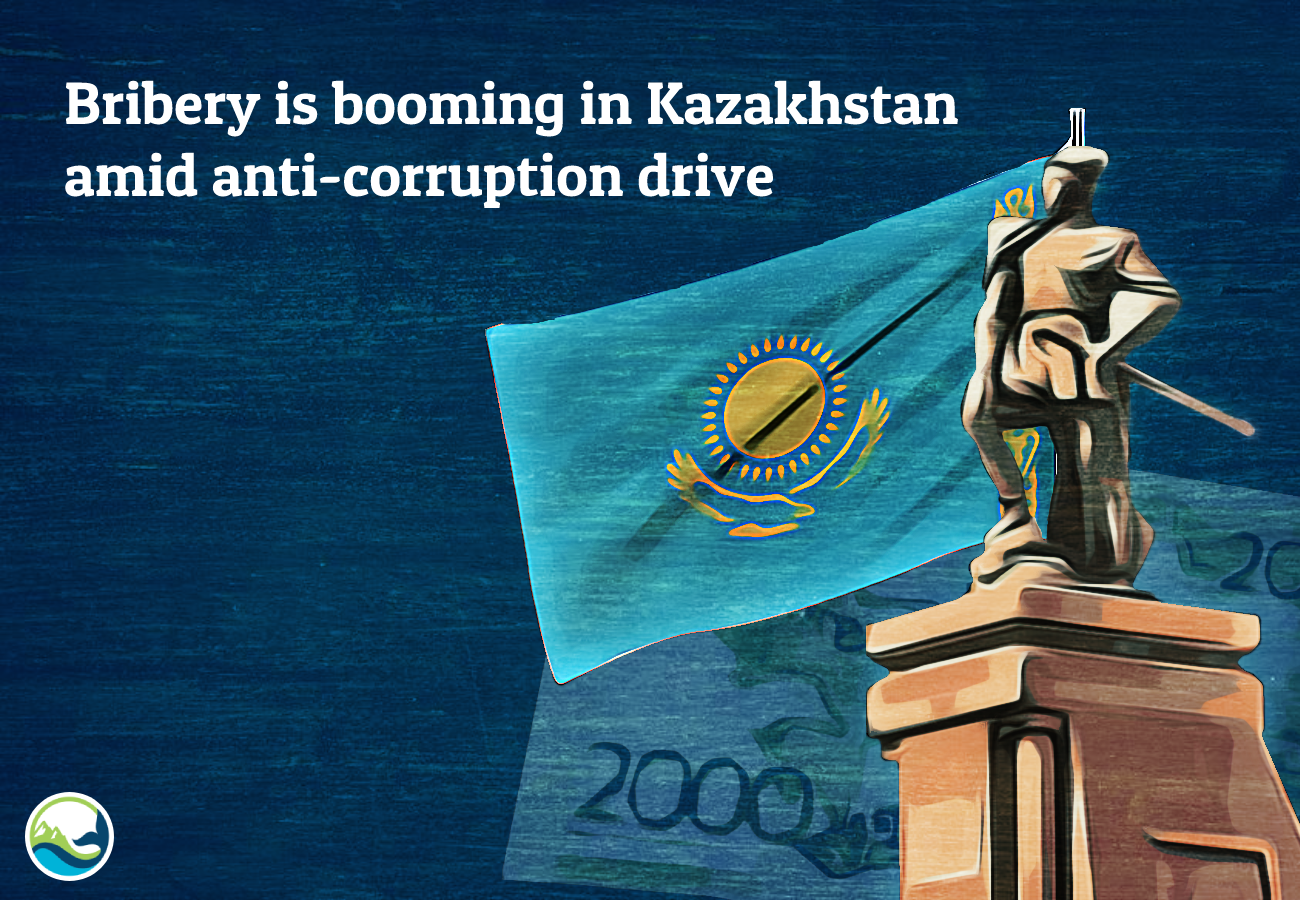
Bribery is booming in Kazakhstan amid anti-corruption drive
21 Jul 2022 (eurasianet)
Bribery is a booming business in Kazakhstan.
That, at least, appears to be the case judging from official data revealing that the number of recorded bribe-taking cases has jumped a third this year.
Law-enforcement agencies registered 374 cases of bribe-taking in the first half of 2022, compared to 280 over the first six months of 2021, according to data from the General-Prosecutor’s Office crunched by the Finprom.kz business website.
That is a rise of 33 percent.
The number of people caught giving bribes was up 13 percent, to 358.
That means investigators detect around four cases of suspected bribery every day.
Cases of acting as an intermediary for a bribe nearly doubled, from 18 to 35.
The total number of corruption cases, including bribery, was up 30 percent in the first half of this year, to 1,312. That includes crimes such as forgery by officials and fraud, both of which approximately doubled, and abuse of office, which rose by a quarter.
Clearly investigators are making more arrests on corruption charges.
But what is not clear is whether graft is on the rise or if the increase in arrests is due to greater political will to root it out.
Anger over corruption was one factor that brought tens of thousands onto the streets at the beginning of this year in civil unrest that has come to be known as Bloody January, which ended in fatal violence.
“The wealth that the country’s political elite allegedly amassed through corruption was a particular concern during protests,” the global anti-corruption watchdog Transparency International pointed out when it released its annual corruption ranking in February.
Kazakhstan tied Gambia and Sri Lanka for 102nd place out of 180 countries.
After January’s unrest President Kassym-Jomart Tokayev pledged “de-oligopolization,” meaning an end to the cronyism and corruption that dogged Kazakhstan during the three-decade rule of Nursultan Nazarbayev, his now sidelined predecessor.
This week the authorities said they had recouped nearly half a billion dollars in allegedly ill-gotten gains in cases involving relatives and associates of Nazarbayev, a few of whom are under arrest.
Other family members continue to pursue their business interests unhindered, including Kazakhstan’s richest couple, Dinara Kulibayeva, Nazarbayev’s middle daughter, and her husband Timur Kulibayev – currently worth $3.7 billion each according to Forbes.
Efforts to recover illicit wealth are led by a commission Tokayev set up last month to return money laundered abroad and “expose monopoly (oligopoly) concentrations of economic resources received via illegal means and return them to the state.”
This was part of his efforts to “revise legislation that has contributed to the concentration of the country’s economic resources in the hands of a narrow group of people and provided them with unnecessary preferences,” he said at the time.
Tackling smuggling is one of Tokayev’s stated priorities – but the latest data show that investigators managed to record just one case on the charge of “economic contraband” in the first half of this year.
Curbing corruption is complicated by resistance from vested interests within the system.
Law-enforcement officers and officials from ministries and state agencies made up the vast majority – nearly two-thirds – of suspects in corruption cases sent to court in the first half of this year, the Finprom.kz report said.
January’s turmoil served to “underscore the dangers of ignoring corruption in priority areas,” Transparency International noted, “but Kazakhstan has an opportunity to turn the tide.”
“So that policies and decisions benefit the common good – not just a privileged few – the way forward should also include meaningful opportunities for civil society participation.”



